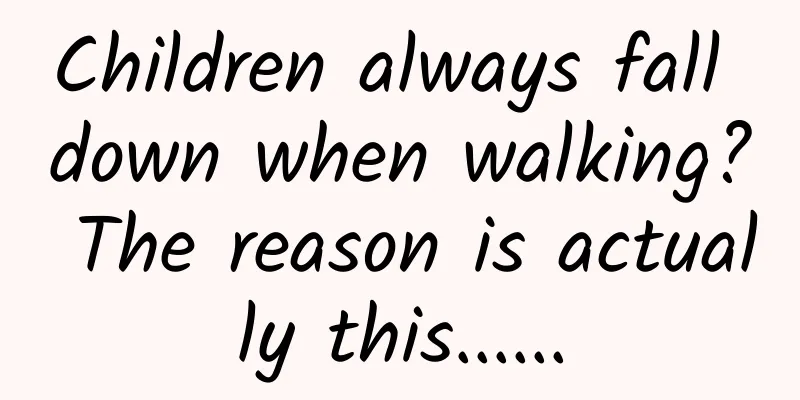National Safe Medication Use Month丨Do you know that there are certain tricks to relieve cough and expectoration?

|
November 17th is World COPD Day Winter is the peak season for respiratory diseases, especially for patients with chronic obstructive pulmonary disease (COPD), who are easily affected by the temperature difference between the climate and seasons, leading to acute attacks of COPD. In addition to regular use of inhalers, many COPD patients also keep some cough and expectorant drugs on hand for emergencies. But there are also some things to pay attention to when taking these drugs. What medicine to use for dry coughs, what medicine to use for coughs with phlegm, whether these medicines can be taken together, what precautions to take when taking these medicines, etc., are all issues that need to be taken seriously and clarified. Why do patients with COPD cough and produce phlegm ? COPD is a chronic inflammatory disease of the airways. The pathogenesis of the disease is relatively complex. Long-term exposure to harmful particles or gases such as tobacco smoke, autoimmune regulation, and genetics may lead to the formation of COPD. Coughing and expectoration are typical symptoms of COPD patients, especially during the acute exacerbation period, often with symptoms such as aggravated cough and increased sputum. The main reason for COPD patients to have cough and sputum is increased mucus secretion and ciliary dysfunction. Under the stimulation of harmful substances such as tobacco smoke, the mucosal glands enlarge and secrete too much mucus, forming a large amount of sputum. At the same time, the cilia become shorter and irregular, and motor disorders occur, resulting in decreased clearance function, resulting in coughing and difficulty in expectoration. What medicine should I use when I have a cough and sputum ? Cough suppressants, also known as antitussives, are divided into two categories: central and peripheral, and can play a cough suppressant role. When COPD patients have a mild cough, it is conducive to the discharge of sputum and no cough suppressant treatment is needed; but when severe and frequent coughs affect rest and sleep, cough suppressant treatment is needed to avoid severe coughing causing chest and abdominal muscle pain, or even rupture of small blood vessels in the respiratory tract, resulting in coughing up blood. Cough medicine Cough suppressants can only temporarily relieve cough symptoms and should not be used for more than one week. If the cough persists for a long time and is accompanied by chest tightness, wheezing or recurrent fever, you should seek medical attention immediately. It should be noted that coughing is a defensive reflex of the body, and the cause needs to be identified and treated accordingly. Do not blindly use cough suppressants. Central cough suppressants should not be used for coughs with a large amount of sputum, so as to avoid obstruction of sputum discharge and retention in the respiratory tract. Expectorants Expectorants, also known as expectorants, refer to drugs that have expectorant or expectorant effects. These drugs can dilute sputum, reduce sputum viscosity, or increase respiratory mucociliary movement, improve the efficiency of coughing to clear airway secretions, and make sputum easier to cough up. During acute attacks of COPD, patients will experience increased sputum volume and thickening of sputum. At this time, expectorants should be used in a timely manner to avoid the risk of suffocation caused by sticky sputum blocking the respiratory tract. Different expectorants have different mechanisms of action and can be selected according to the specific condition. If necessary, multiple expectorants can be used in combination. Some expectorants have "multi-tasking" and have anti-inflammatory and antioxidant effects while removing phlegm. They can be used for anti-inflammatory and antioxidant treatment of COPD in the stable stage, such as acetylcysteine, carbocysteine, and erdosteine. However, it is not recommended to increase the dosage of these expectorants on your own. Whether to take them for a long time requires a doctor to evaluate the condition before deciding. Can cough suppressants and expectorants be used at the same time ? This depends on the condition. Cough suppressants are used for dry coughs without sputum. If there is a lot of sputum, it is not appropriate to use strong cough suppressants, and it is more important to use expectorants. Especially for patients with thick sputum that is difficult to cough up or poor sputum expectoration ability, if too much emphasis is placed on cough suppression, coughing may become difficult, causing sputum to block the respiratory tract and the risk of suffocation. For those with sputum and severe cough, expectorants and weaker cough suppressants (such as peripheral cough suppressants) can be used together to prevent severe coughing from affecting life. There are some tricks to stop coughing and removing phlegm. Do not use medicine blindly. If you have persistent coughing and expectoration, please see a doctor immediately. |
<<: Common, serious, and potentially fatal, when should this liver disease be considered?
Recommend
How can I make it tight?
For younger girls, their vagina is relatively tig...
Do you doze off during the day? Is a proper nap harmful to your health?
For some people, nothing is more refreshing than ...
Swelling of the abdomen at night
Many women generally have the problem of lower ab...
The Winter Olympics menu is out! These common ingredients contain stimulants, so don't eat them!
Expert of this article: Chu Yuhao, PhD of Beijing...
The difference between Qing Palace and abortion
Curettage is what we often call curettage. In the...
The dangers of functional uterine bleeding
In our country, red represents passion and happin...
What to do if you have mild abdominal pain in early pregnancy
During pregnancy, there will always be various pr...
How to calculate the number of days of delayed menstruation
How to calculate the number of days of delayed me...
What are the adverse effects of excessive amniotic fluid on the fetus?
Excessive amniotic fluid is actually an abnormal ...
Introduction of whitening mask
When it comes to skin, most people consider fair ...
Can the fetal heart rate tell whether it's a boy or a girl?
There is no scientific reason to judge the gender...
Are there any side effects of laser hair removal?
Modern photorejuvenation and laser hair removal a...
International Stomach Protection Day丨This type of cancer has a high incidence and mortality rate, how to prevent it?
Today (April 9) is International Stomach Protecti...
This kind of sugar is a hidden "health killer". Many people eat it almost every day, but they don't know it.
With the popularization of health concepts, peopl...
Is egg retrieval harmful to women?
In clinical medicine, the method of in vitro fert...









